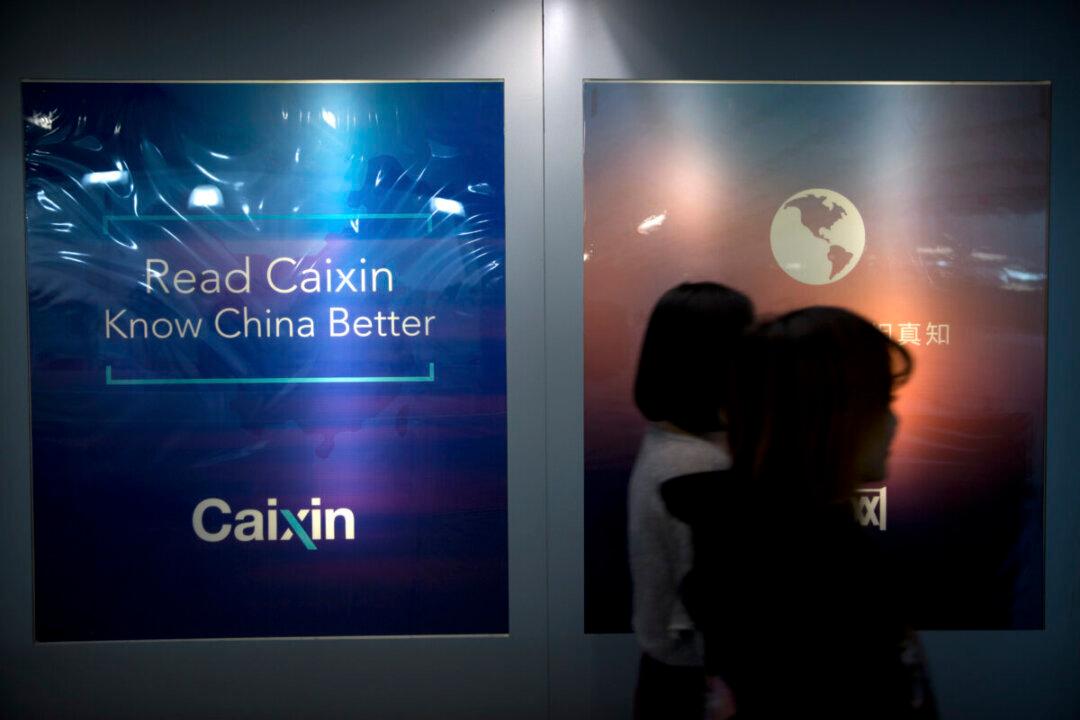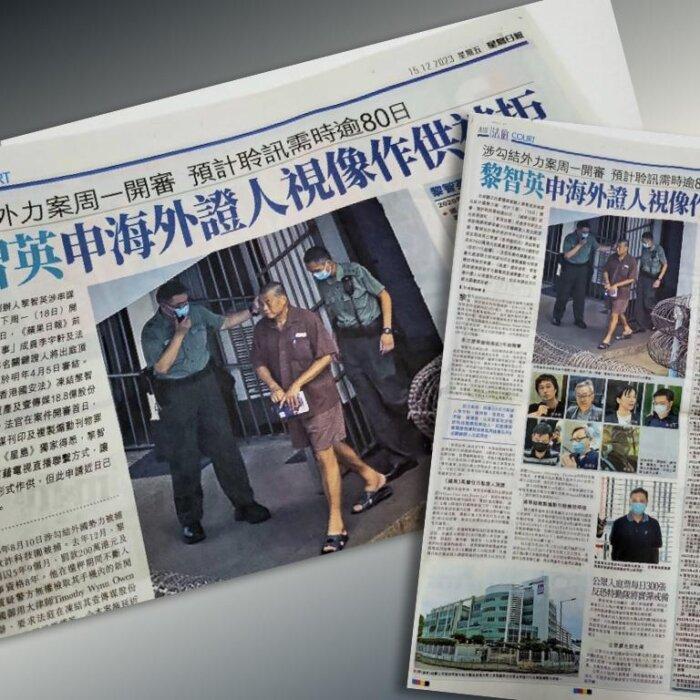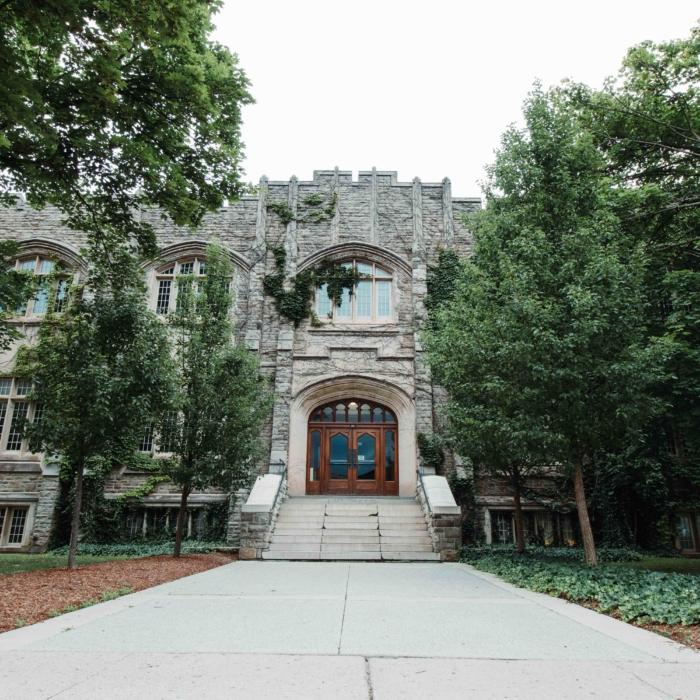Caixin, a Beijing-based major Chinese media group considered pro-reform, had their articles deleted one after another at the end of 2023. The deletion of its year-end special particularly got wide attention as it represented the public’s voice which has been suppressed by the communist regime, experts pointed out.
Hu Shuli, the owner of Caixin, was allegedly interviewed by the ruling Chinese Communist Party’s national security agency.
Dr. Jiang Yanyong, 2003 SARS Whistleblower
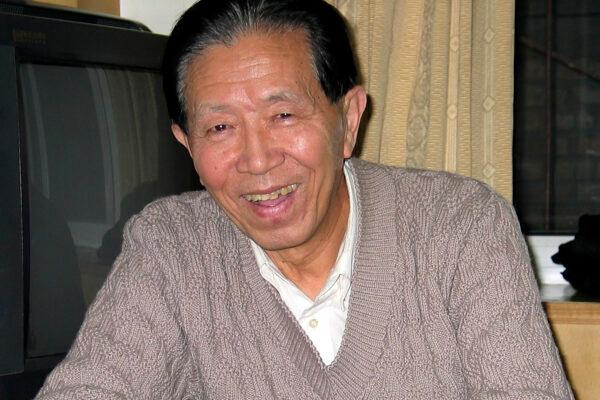
Dr. Jiang Yanyong, the whistleblower of the SARS epidemic in China, a viral respiratory disease caused by a SARS-associated coronavirus, and a retired doctor from the CCP military General Hospital (a.k.a. Beijing 301 Hospital), passed away on March 11 at the age of 91. He revealed the truth about the SARS epidemic in 2003 in China to the world.
When the SARS epidemic broke out in China in 2003, the CCP covered up the true scale of it. On April 3, 2003, Zhang Wenkang, the then Minister of Health, claimed that “there are only 12 cases of SARS in Beijing and 3 deaths. SARS in China has been effectively controlled.”
Dr. Jiang knew that the real data was much higher than the figures provided by Mr. Zhang, and that the national SARS epidemic had reached a very serious level at that time.
The next day, he gave the related information to Chinese state media CCTV 4 and Phoenix TV, but was ignored by them. Afterward, he revealed what he knew about the truth of the outbreak in interviews given to the American media, making the epidemic known to the world. He said in one of the interviews with Chinese media Southern People Weekly: “For doctors, seeking truth from facts is the most basic requirement, so we must insist on telling the truth.”
Afterward, Dr. Jiang was kidnapped by the regime’s national security several times and put under house arrest. The authorities also banned him from traveling abroad to visit relatives and denied him medical treatment.
In February 2004, Dr. Jiang wrote public letters to the CCP’s National People’s Congress and the Chinese People’s Political Consultative Conference, calling for a redress of the 1989 student democracy movement, which was labeled a “riot” and was brutally suppressed by the regime’s military. Countless unarmed college students and citizens who were protesting were killed by the military on June 4, 1989.
When Dr. Jiang passed away, the authorities ordered Dr. Jiang’s family not to open the farewell service to the public, not to accept flower baskets from the public, and not to accept interviews by the media.
Dr. Gao Yaojie, AIDS Epidemic Whistleblower
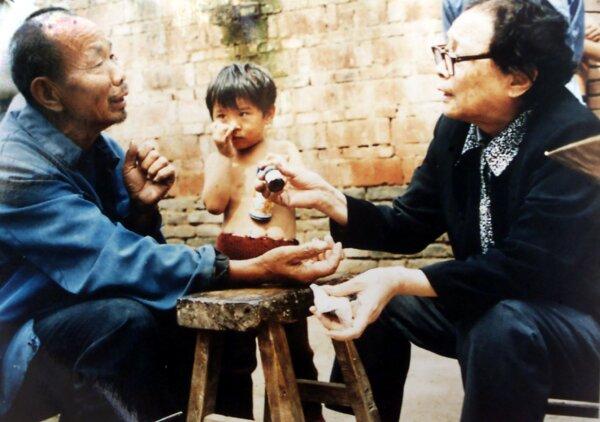
Dr. Gao Yaojie, a Chinese dissident who was in exile in the United States, died in New York on Dec. 10 at the age of 95. The CCP’s official media have been silent about Dr. Gao’s passing.
Dr. Gao was known for revealing to the nation and the world in 1996 the illegal paid blood transfusions and donations business run and backed by local CCP authorities that caused the wide spread of AIDS in rural areas of Henan Province, infecting tens of millions of innocent villagers and the emergence of countless “AIDS villages,” most of whom have died.
After that, she was monitored and persecuted by the CCP. In 2009, she was forced to flee to the United States, as the regime tried to silence her and take away all the evidence she collected on the AIDS epidemic. She had lived in a small government apartment in New York and was cared for by caregivers. She wrote three books about the man-made AIDS disaster in China, published in both Chinese and English.
Zhu Ling, Victim of a High-Profile Cold Case
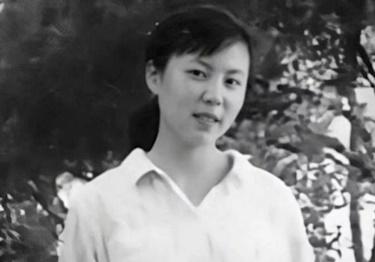
Zhu Ling, a victim of “thallium poisoning” at Tsinghua University, passed away on Dec. 22, at the age of 50. The news topped Chinese social platforms on Dec.23, triggering public fury with people calling for justice for her.
Ms. Zhu, a native of Beijing, was admitted to Tsinghua University in 1992. She was deliberately poisoned twice with the deadly chemical thallium in 1994 and 1995. She survived but suffered lifelong damage, such as general paralysis, severe brain damage, and blindness.
Ms. Zhu’s roommate and classmate Sun Wei was the only suspect in the case and was interviewed by the police, and her motive was believed to be jealousy. However, the Beijing police were ordered to suspend the investigation and drop the case.
Ms. Sun’s grandfather, Sun Yueqi, was the vice chairman of the Revolutionary Central Committee of the Kuomintang in the CCP’s congress. He knew the background of the former CCP leader Jiang Zemin’s traitor family during the Japanese invasion of China in World War II, which Jiang wanted to conceal. Jiang Shijun, Jiang’s father, was a former official of Wang Jingwei’s puppet government in Nanjing. Jiang Zemin also studied at a collaborator’s university and participated in a Japanese spy training class. It was reported that Mr. Sun asked Jiang Zemin, who was the CCP’s leader then, to protect his granddaughter Sun Wei. Jiang Zemin promised Mr. Sun: “As long as I, Jiang Zemin, is alive, your granddaughter will not go to jail.”
Other Sensitive Deaths
Jiang Ping, a well-known Chinese legal scholar who is also featured in a big photo in Caixin’s special, passed away on Dec. 19, 2023, at the age of 94. He was a retired law professor at China University of Political Science and Law and the former president of the university. He was respected as “the conscience of the Chinese legal community.” Mr. Jiang said that his biggest dream in life was to see the “rule of law” in the world, however, he didn’t see it realized, living in the communist dictatorship country of China.Mr. Jiang was persecuted by the CCP during the anti-rightist movement in the 1950s. In 1989, he supported the student democratic movement and protected students, and because of that, he was dismissed from the post of president of the University of Political Science and Law.
Another photo in the Caixin’s year-end special that attracts attention is the one that has the list of 40 CCP academicians who died in 2023, the group that has the most deaths in the year-end special. The causes of death of many of them were not publicized.
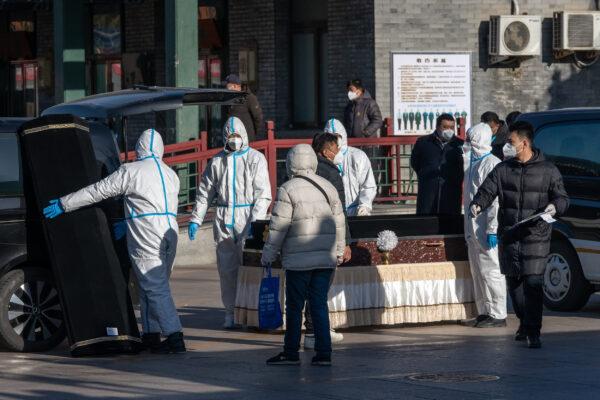
Since the massive wave of COVID-19 in China in late December 2022 and in January 2023, many CCP members, officials, as well as experts, scholars, and celebrities in various fields who support the CCP have died of illness suddenly.
At the onset of the pandemic in March 2020, Mr. Li described plagues as an inevitability when moral values deteriorate.
People Refuse to Be Silenced
Meanwhile, well-known current affairs commentator Wu Zulai revealed on social media X that Caixin’s founder Hu Shuli was interviewed by the CCP’s national security agents from Beijing while on a business trip in Shanghai in recent days.Feng Chongyi, associate professor at the University of Technology, Sydney, told The Epoch Times that in the harsh environment that lacks freedom of speech under the CCP’s censorship, “Hu Shuli worked hard to safeguard her right to speak. She has the backbone of a traditional Chinese scholar-official and is admirable. She said what needed to be said before her media was shut down or before she was thrown into jail. I think she went all out.”
The CCP’s cyberspace administration has continuously deleted sensitive reports from Caixin, but many people have made backup copies and screenshots that are circulating on social media.
U.S.-based current affairs commentator Tang Jingyuan said that the authorities blocked Caixin’s reports, because “he [CCP leader Xi Jinping] knows that he has no power to make people deaf or blind, but he has the power to make them mute and not allow them to speak. As long as they are intimidated and they can’t speak up, he feels that he has the upper hand and is always in a position of control.”
Mr. Feng said that the CCP has tried its best to suppress speech in recent years, but nowadays the concepts of democracy, constitutionalism, rule of law, and human rights have been deeply rooted in the hearts of the people. People have no channels to speak within China, so some turn to overseas social media to speak out.
“Nowadays, there are many people in China who are angry but dare not speak out, and who dare to speak but cannot speak out. People’s minds have changed, and there are many people who hate Xi Jinping to the core. He cannot change this fundamental of people’s hearts.”
